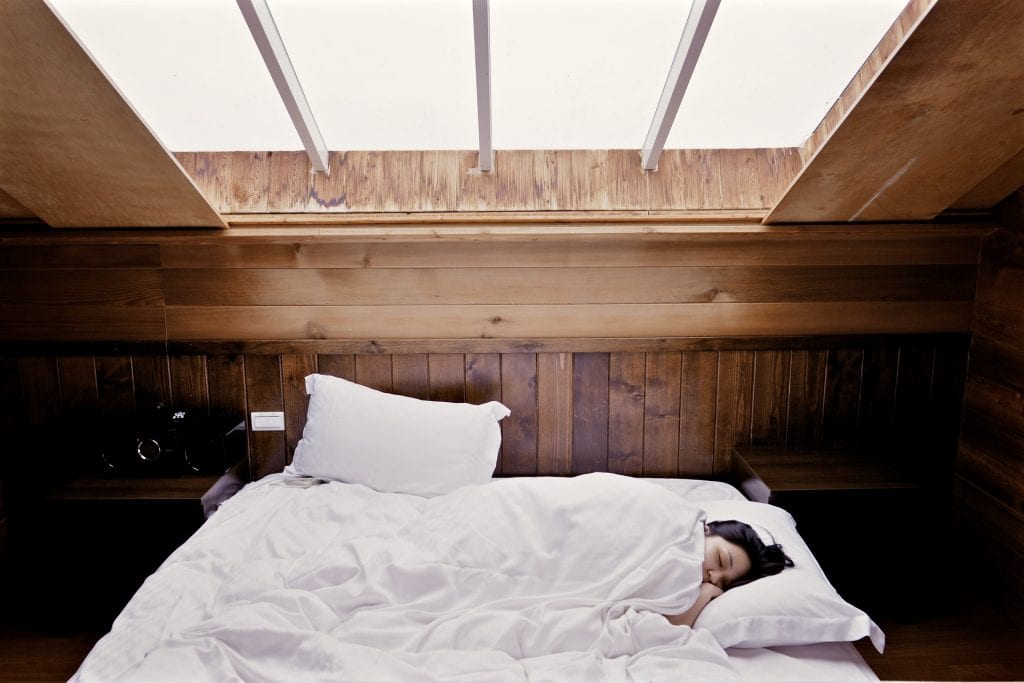Circadian Gymnastics: Manipulating Your Sleep Schedule
There are lots of perfectly good reasons to adopt, for a little while, an abnormal sleep schedule. Maybe you’re relaxing for the holidays, enjoying a breakfast that features cocoa and toast at 11 in the morning. Maybe you’re jetsetting around the world, and have to tune into the local timezone. Perhaps you have to adapt your sleep cycle to the demands of your work. While we always advocate normal, diurnal, schedules, the reality is that there are times when this just isn’t going to happen. Fortunately, science gives us a couple of tools for adjusting our sleep schedules very quickly, which allows us to snap back from these abnormalities.

Food Can Alter Your Sleep Cycles
Though human clinical testing on the subject is in short supply, this is supported both through anecdotal evidence and analogous experiments conducted on mice in a 2009 Harvard study. What the study found was that, in addition to the “normal” circadian rhythm, our bodies may possess a secondary clock for regulating sleep-wake cycles. This clock is tied to food, and when we are fed.
What the researchers found is that when mice were briefly starved, then only fed during times when mice are ordinarily sleeping, the mice adjusted their sleep-wake cycles accordingly. This discovery has triggered a home-grown remedy for jet-lag, where many travelers find that fasting during a flight and after landing, and following up with a breakfast at the local mealtime, is enough to quickly shake off the negative effects.
You can use this discovery to change your sleep cycles however you like. Simply start fasting approximately sixteen hours before you intend to wake up, then make sure you eat a big breakfast immediately after you do. Your food-clock will inform the rest of your body that you’ve made an optimal choice.
Note: sub-par sleep is also associated with imbalances in the hormones ghrelin and leptin, which essentially make you crave food more. If your sleep cycle is disrupted, fasting may be especially difficult, but stay strong!
Light Suppresses the Sleep Hormone
One of the hormones that helps you sleep – and which does a bunch of other, life-saving functions – is melatonin. It’s an important part of creating a healthy sleep schedule, and your body produces it in accordance with how much light you’re surrounded by. If you’re surrounded by lots of light, you’re not going to produce much melatonin, which makes sleeping much more difficult.
This can be a powerful tool in manipulating your own sleep schedule. Making sure that you that are surrounded by dim light an hour or so before bed will help your body produce more melatonin. In participants who were exposed to full indoor lighting right before bed, melatonin levels are suppressed by as much as 50%. Cultivating an atmosphere of relative darkness, therefore, should make drifting off much easier.
This can be particularly useful if you’ve got to be nocturnal. By gradually reducing the amount of light you receive at the end of your wake cycle, you can encourage your body to produce more melatonin before you finally decide to turn in.
Methodist Continuing Care
Sleep Lab
701 S. Fry Rd.
Suite 225
Katy Texas 77450
© 2023 The Respire Institute – Pulmonary and Sleep Disorders. All Rights Reserved The Respire Institute – Pulmonary & Sleep Medicine
West Houston & Katy Area
Advanced Respiratory Care Center
Primary Clinic and Pulmonary Rehabilitation Center
Methodist West Professional Building 2
18300 Katy Fwy Suite 615
Houston, Texas 77094
West Houston & Katy Area
Advanced Respiratory Care Center
Primary Clinic and Pulmonary Rehabilitation Center
Methodist West Professional Building 2
18300 Katy Fwy Suite 615
Houston, Texas 77094
Memorial West
Sleep Lab
10 Medical Plaza
10837 Katy Freeway,
Suite 250
Houston, TX 77079
contact information
Contact Us
Careers
Marketing & Partnerships
Patient Resources
Join a Research Study
New Patient Packet
Patient Portal
Provider Resources
Sleep Study Referral Form
Meet our Doctors
Referral Form
